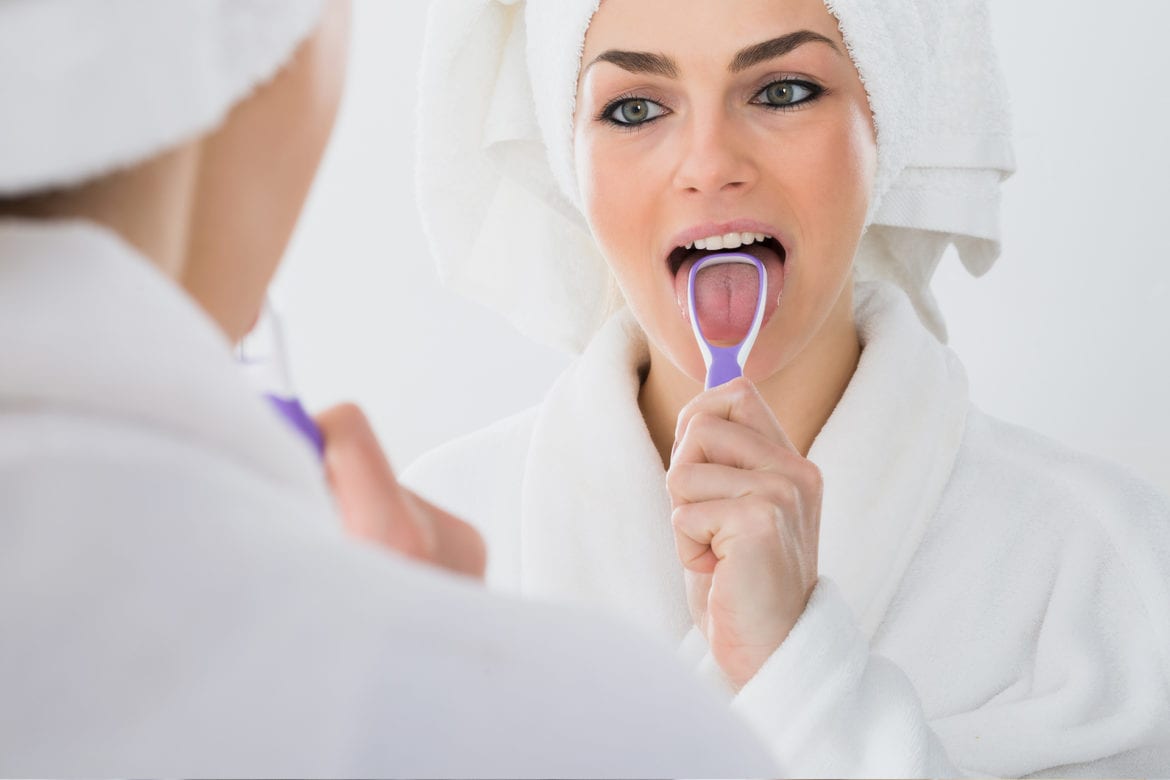- Brushing your tongue, which can be done using a tongue scraping tool, is becoming increasing popular in the west.
- If you incorporate brushing your tongue into your daily oral routine, you’re right on track.
- A Cape Town dentist says tongue brushing is safe, but the key is to use light pressure when doing so.
Oral hygiene, including brushing your teeth, flossing your gums and brushing your tongue may feel basic, but it goes beyond simply providing you with a beautiful smile and fresh breath: as News24 previously explained, good dental hygiene is essential to preventing tooth decay and gum disease, and maintaining good oral health can also significantly affect your overall health.
Interestingly, one mouth-cleaning practice – brushing your tongue – has been a part of some cultures for centuries, including Eastern and oriental cultures. According to Live Science, old records refer to scraping your tongue as part of the 3 000-year-old Ayurvedic medicine system in India, where it remains a regular part of their regime today. However, it has only recently begun to garner popularity in the west, with various tongue scrapers available on the market.
Since your tongue harbours bacteria, experts believe you’re doing your mouth a disservice if you neglect to clean the (bad) bacteria living on your tongue. But the tongue is also one of the body’s most sensitive organs, so how safe is it really to be brushing it?
We spoke to Cape Town-based Dr JJ Serfontein, owner of JJS Dentistry, a premier dental practice for Cosmetic and General Dentistry, for clarity.
Brushing your tongue: yay or nay?
If you’ve incorporated tongue brushing into your oral care routine, keep it up.
According to Serfontein, brushing your tongue gently (from back to front) significantly decreases harmful bacteria in the oral cavity as well as the presence of volatile sulphur compounds, which is what causes bad breath.
“A coating of bacteria on the tongue, therefore, actually has a negative impact on your sense of taste, and studies have shown that removing this bacterial coating on the tongue significantly improves your tastebud’s ability to ‘taste’,” says Serfontein.
The key, however, is to ensure you’re doing this gently by applying a light pressure.
He adds:
As far as physical damage to these taste buds is concerned, there has been no evidence suggesting that it causes any physical damage – unless done too aggressively where it can result in irritation or ulcers (sores). Our tongue can handle multiple different temperatures and textures of the things we eat and drink, so damage by gentle brushing or tongue scraping is highly unlikely.
Serfontein says that toothbrush bristle design in the last two years has especially focused on tapered or knife-edged bristles. In other words, they’re extremely soft in texture, so as not to cause any harm to the gums when brushing, and to more accurately reach hard-to-reach places in between the teeth and underneath the gums.
So, in a nutshell: “As long as a soft toothbrush is used in a gentle back-to-front motion, no harm can be done to the gums and consequently not to the tongue either. Tongue scraping, when done gently and non-aggressively, is not harmful to the tongue [as explained earlier],” says Serfontein.

